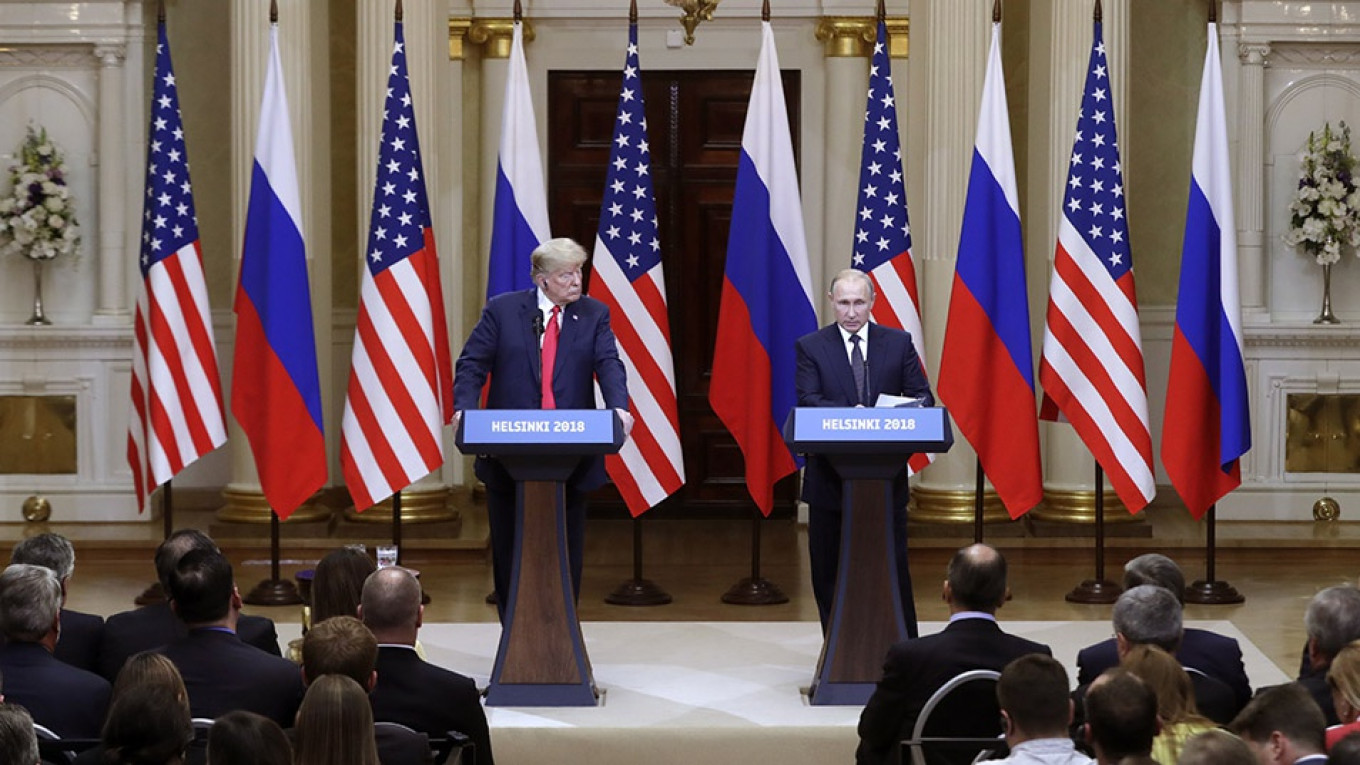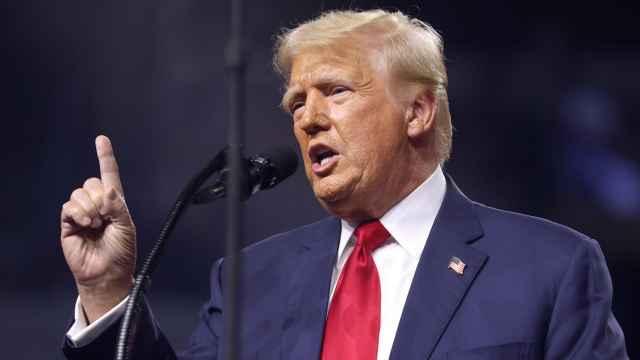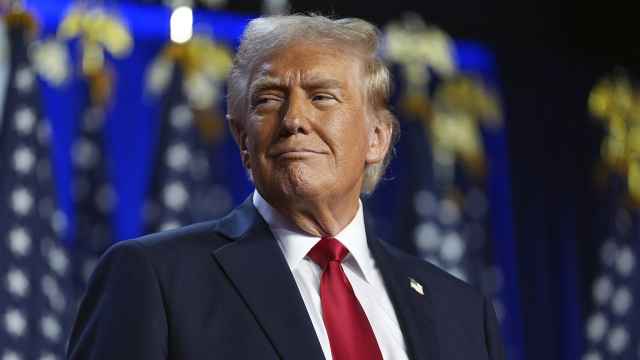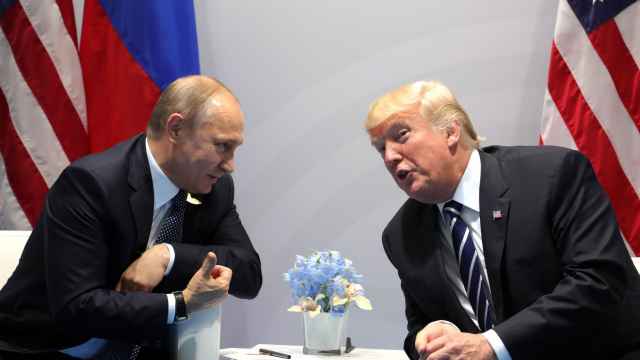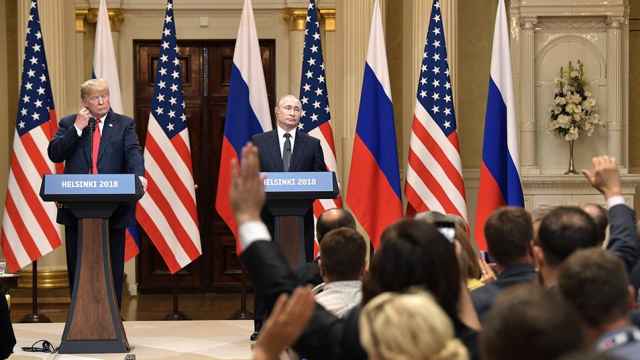If there was a winner from Monday’s summit between Vladimir Putin and Donald Trump in Helsinki, analysts in Moscow have little doubt it was the Russian president who came out ahead.
After a joint press conference in which Trump railed against domestic opponents and cast doubt on U.S. intelligence agencies, some American commentators called his performance “treasonous,” “utterly grotesque” and “shameful.” Republican Senator John McCain described it as “one of the most disgraceful performances by an American president in history.”
On the other side of the Atlantic, however, the meeting was received very differently.
In its evening news wrap, the state-run Channel One described the summit, which lasted several hours, as “grandiose” and “unprecedented.” Many Russian news outlets portrayed Putin as confident and the dominant party.
"It seemed as though Putin was dragging Trump along,” a commentator on Channel One’s "Vremya" news program said.
With allegations of Russian election meddling dominating U.S. headlines and stark disagreements over the Kremlin’s military interventions in Syria and Ukraine, the talks in Helsinki were widely seen by pundits on both sides as a win for Putin even before the two presidents arrived in Finland.
The summit helped Putin reassert Russia’s global standing at a time of Western sanctions, Dmitry Nekrasov, an economist and opposition politician, told The Moscow Times. “Putin needed this,” he said in a phone interview, “ it is inexplicable why Trump would [meet].”
“The meeting allowed Putin to demonstrate to the world that despite being isolated on the international stage, he is a prominent and important leader,” Nekrasov added. “He was also able to show the Russian elite that he has retained his status."
As well as sending a message to the world, however, Putin’s performance was also targeting a domestic audience, said political analyst Abbas Gallyamov.
The government introduced an unpopular proposal in June to raise the retirement age, leading to ongoing and widespread protests across the country. “After the failures of the pension reform,” Gallyamov said, “Putin had to remind voters of his geopolitical effectiveness.”
At the same time, however, analysts said Russia’s gains from the summit are hard to quantify and may be short-lived.
Putin had to remind voters of his geopolitical effectiveness.
“It’s hard to say whether anything positive will come from this,” international relations expert Fyodor Lukyanov told The Moscow Times. "It depends on whether they will actually work on any of the issues they discussed."
There is little doubt, however, that the summit was a “short-term PR victory for Moscow," said political analyst Vladimir Frolov. “The United States seems to have acknowledged the need to unfreeze the relationship despite zero change in Russian posture on Ukraine," he added.
Nevertheless, the long-term benefits are less clear: The summit did not produce a joint statement or, as was the case after Trump's meeting with Kim Jong Un, a cooperation agreement.
“There was no signed document, not even one with little substance," Nekrasov concluded. "Which is ultimately what the summit amounted to: little substance.”
A Message from The Moscow Times:
Dear readers,
We are facing unprecedented challenges. Russia's Prosecutor General's Office has designated The Moscow Times as an "undesirable" organization, criminalizing our work and putting our staff at risk of prosecution. This follows our earlier unjust labeling as a "foreign agent."
These actions are direct attempts to silence independent journalism in Russia. The authorities claim our work "discredits the decisions of the Russian leadership." We see things differently: we strive to provide accurate, unbiased reporting on Russia.
We, the journalists of The Moscow Times, refuse to be silenced. But to continue our work, we need your help.
Your support, no matter how small, makes a world of difference. If you can, please support us monthly starting from just $2. It's quick to set up, and every contribution makes a significant impact.
By supporting The Moscow Times, you're defending open, independent journalism in the face of repression. Thank you for standing with us.
Remind me later.


